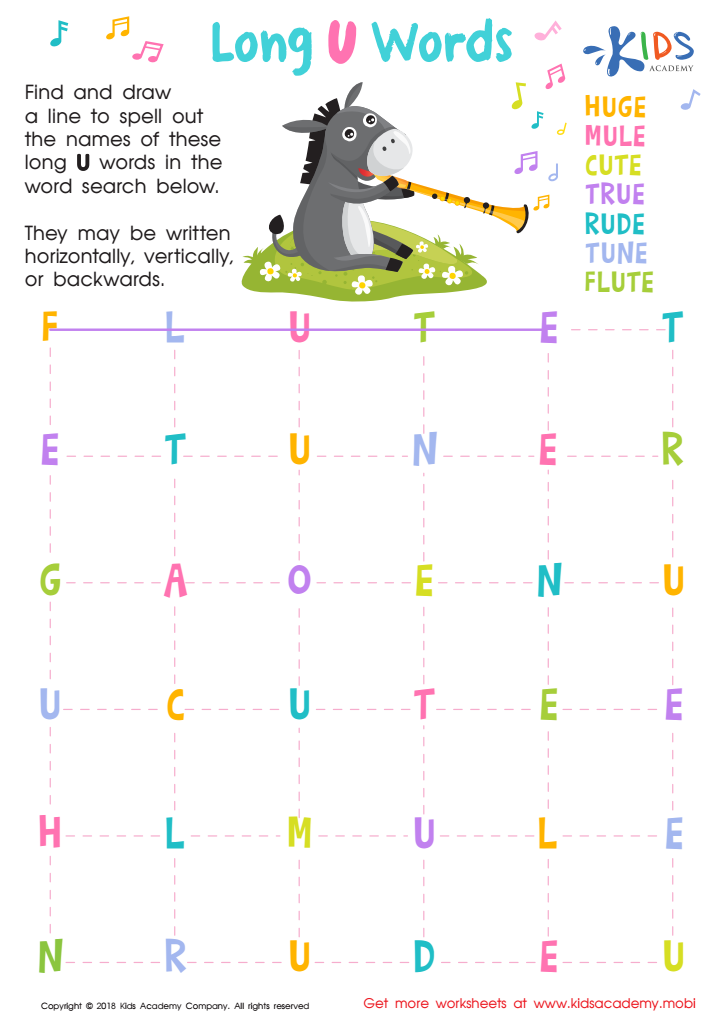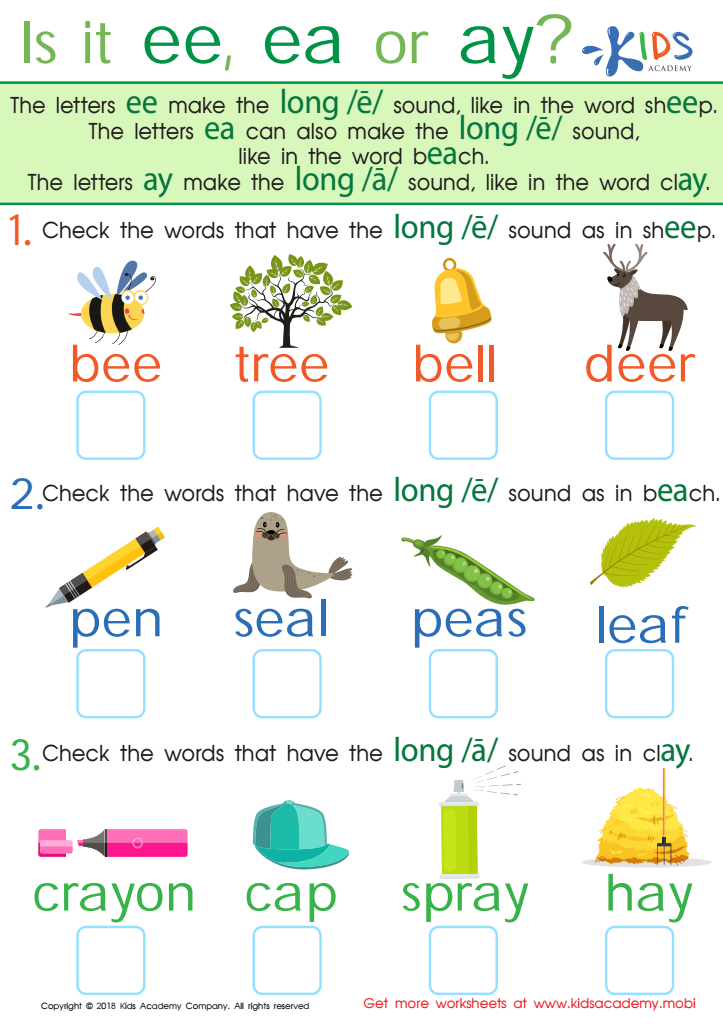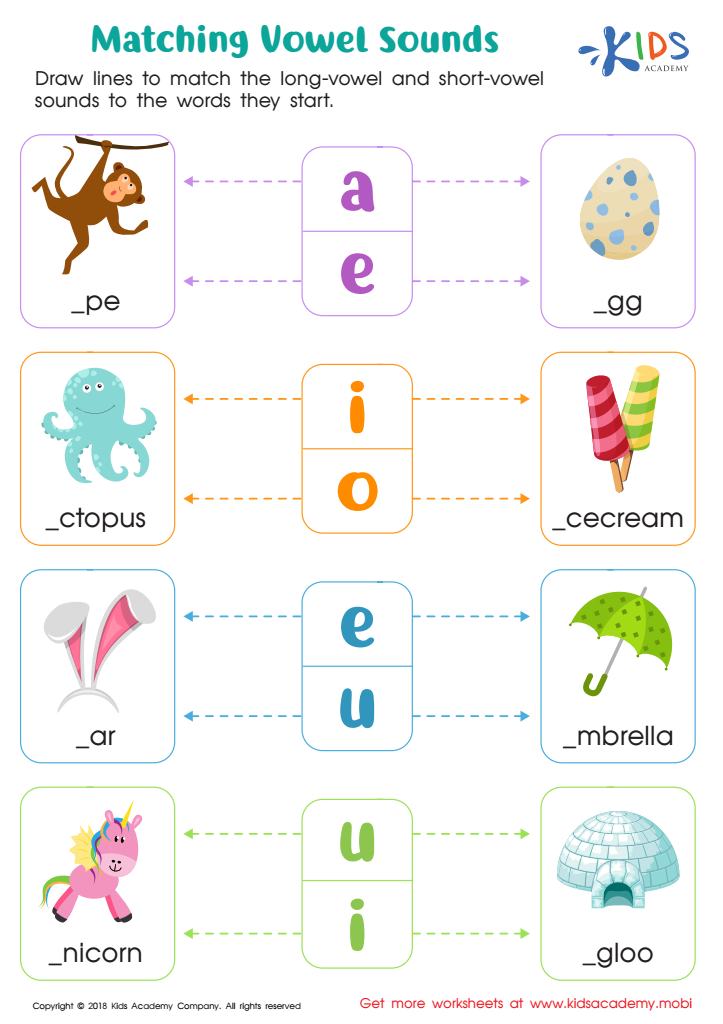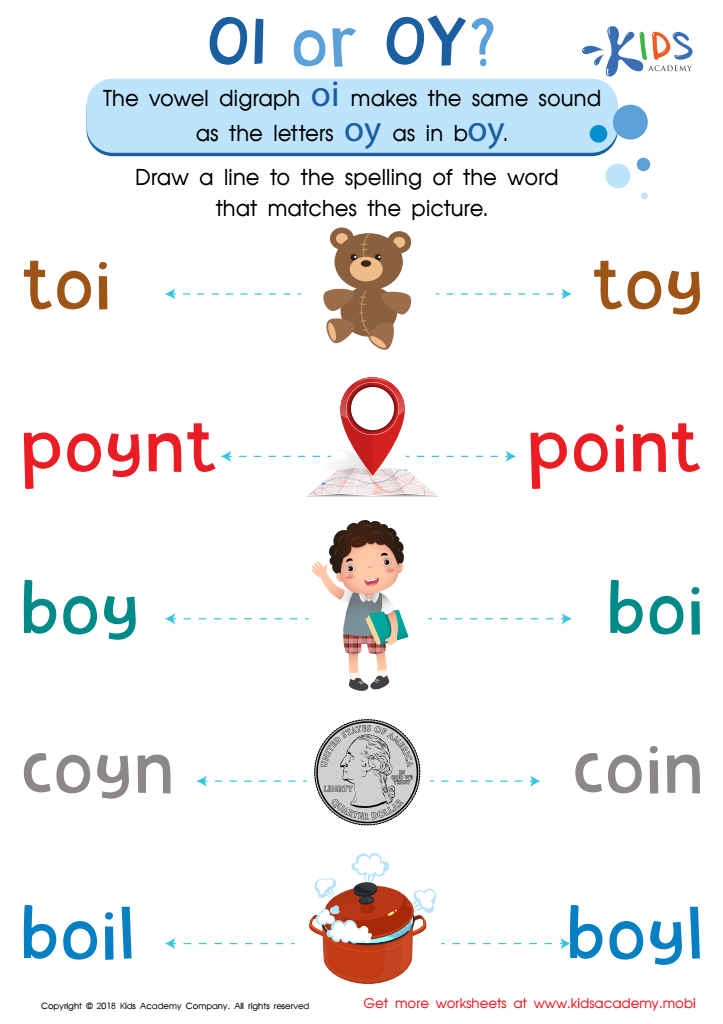Reading proficiency Vowels Worksheets for Ages 6-9
5 filtered results
-
From - To
Boost your child's reading proficiency with our engaging Vowels Worksheets designed for ages 6-9! These specially crafted worksheets focus on reinforcing vowel recognition, sound patterns, and usage in simple words. Your young learners will enjoy a variety of fun activities, including matching, filling in the blanks, and reading exercises tailored to their learning level. Our resources not only promote literacy development but also enhance critical thinking and comprehension skills. Perfect for classroom use or at-home practice, these printable worksheets encourage independent learning and a love for reading. Explore our collection today and help your child become a confident reader!


Long /u/ Words Worksheet


Is It EE, EA, or AY? Worksheet


Matching Vowel Sounds Worksheet


Long and Short U Worksheet


Reading: OI and OY Worksheet
Reading proficiency, particularly with vowels, is crucial for children aged 6-9 because it lays the foundational skills for literacy development. Vowels are the core components of words, and understanding their sounds and usages helps children decode and comprehend text. Mastery of vowel sounds enhances phonemic awareness, a critical predictor of reading success. When students grasp how to manipulate vowels, they become more capable of sounding out words, which fosters confidence and enjoyment in reading.
Moreover, proficient reading skills in this age group support overall academic achievement. Children who struggle with reading tend to face challenges in other subjects as reading is fundamental across curricula. Early intervention is essential; identifying and addressing difficulties with vowel recognition and pronunciation can prevent long-term academic struggles.
Additionally, proficient readers are more likely to develop a lifelong love for reading, which can lead to improved vocabulary, critical thinking skills, and creativity. Teachers and parents should therefore prioritize vowel instruction and support, creating a rich literacy environment that encourages exploration and growth. Ensuring children develop strong reading skills can significantly impact their future educational opportunities and personal development, making it an essential focus during these formative years.

 Assign to My Students
Assign to My Students












